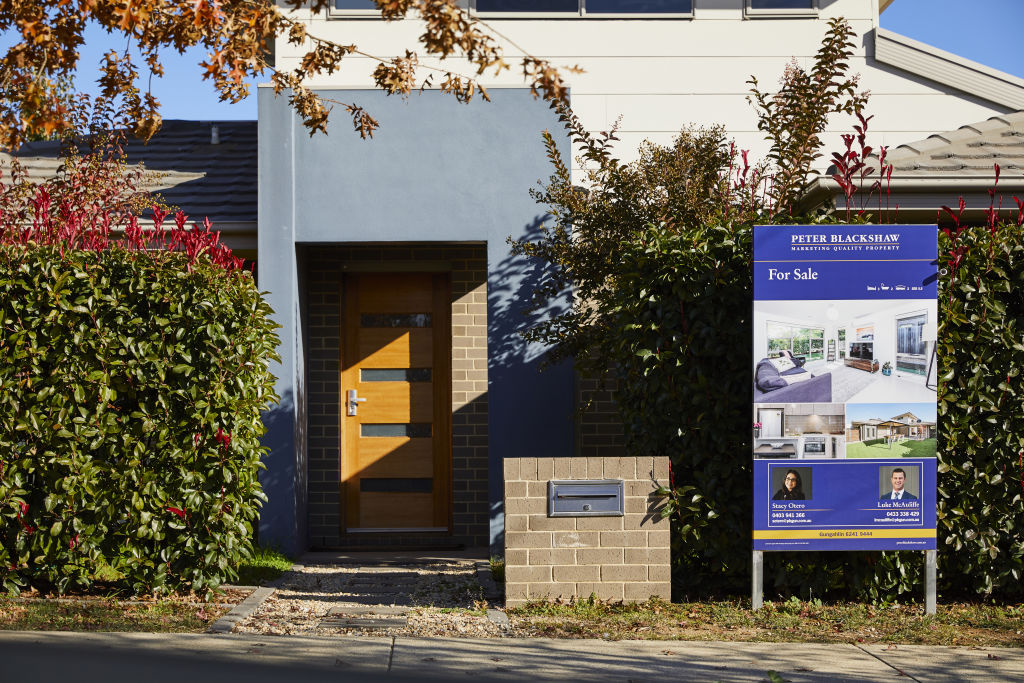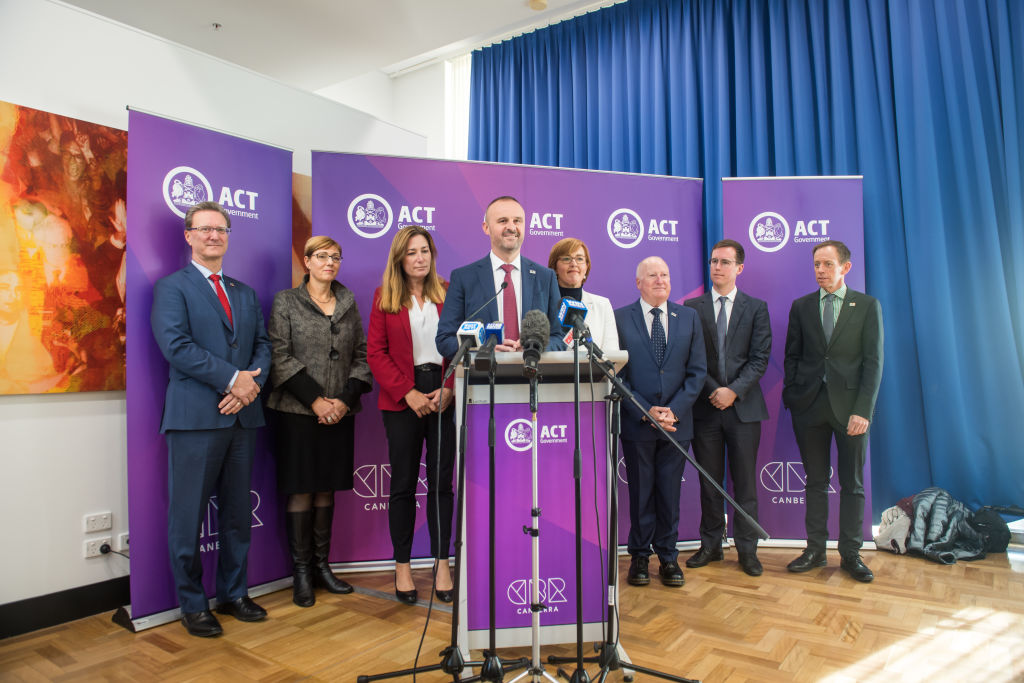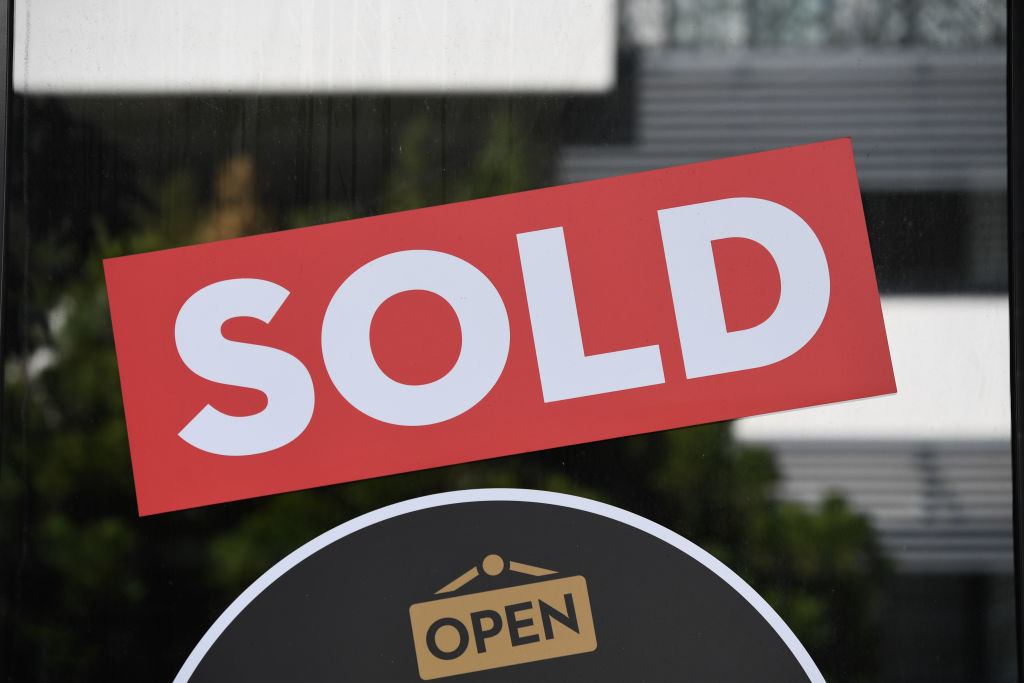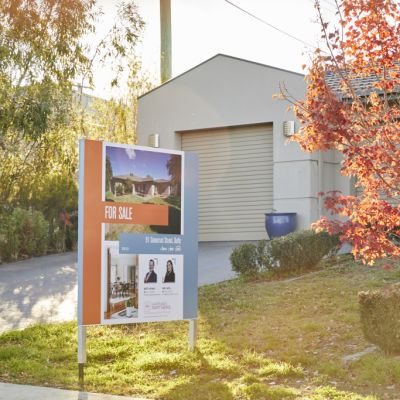Stamp duty: What other states can learn from the ACT's moves to axe it

Stamp duty has been a hot topic of conversation in recent weeks, particularly for the NSW and Victorian governments, which are pushing to abolish it in a bid to revive the states’ economy following COVID-19.
In the nation’s capital, however, stamp duty is already on its way out.
First of all, what is stamp duty and what are the ACT’s plans?
Stamp duty is a tax home buyers are required to pay after they purchase a property.
In 2012, the ACT government began phasing out stamp duty as part of its 20-year plan to reform the territory’s property tax system.
To compensate for the loss of revenue, the state government has introduced higher land taxes and rates for residential and commercial property owners.
ACT Chief Minister Andrew Barr previously said the reform was intended to make the system fairer. In 2012, stamp duty had made up almost a quarter of all revenue, despite only nine per cent of the population having paid the tax.
Fast forward eight years to this financial year, where rates for houses and units are expected to climb by 7 and 11 per cent, respectively, on average. Land taxes are also expected to increase by an average of seven per cent.
While buyers are actually paying less in stamp duty, revenue from taxes collected has increased since the 20-year plan started.
The plan also promised that commercial land tax would be abolished, which the government fulfilled in 2012.

According to former treasurer Ted Quinlan’s review of the state’s tax system, the ACT’s main revenue streams were “volatile, unfair and inefficient, and therefore unsustainable in the long-term”.
The review found that shifting to land-based taxes would create an even playing field for first-home buyers and a fair and more predictable form of tax to raise revenue.
St George senior economist Janu Chan said the review was right, adding that stamp duty was “not an efficient tax … it distorts buyer behaviours”.
“It’s a hurdle when transacting property,” Ms Chan said.
“In terms of buyer behaviour in the economy, buyers are pushed out of their preferred homes because they don’t take into account stamp duty costs.
“For example, if you were wanting to move houses to something more suitable for you, whether that is upsizing, downsizing or buying a home closer to work, stamp duty changes your decision about what you might want to do and hinder you from going out to purchase another property.”
Ms Chan recommended other states to follow he ACT’s lead and axe stamp duty in favour of a broader property tax system.
“ACT is at the forefront of readjusting property tax,” Ms Chan said.
“One of the things you could take away from what the ACT has done is that its tax reform is progressive and over a long period of time… it’s not happening overnight.”
What has this meant for ACT buyers?
From July 1, 2019, the Home Buyer Concession Scheme came into effect in the ACT, which meant first-home buyers were no longer required to pay stamp duty on any residential property, so long as their annual household income was less than $160,000.
In order to cover the costs of stamp duty abolition, the first-home owners grant of $7000 was scrapped.
Bree Prince of Hive Property in Canberra said several first-home buyers held off their purchasing plans until after July when the scheme was introduced.

“Prior to the scheme coming into effect, it was very hard for first-home buyers to get their foot into the market,” Ms Prince said.
For those who couldn’t afford to buy a home at the time, they were faced with the highest house rents in the nation at $550 a week, according to the Domain House Price Report for the June 2019 quarter.
“Now we have an influx of first-home buyers who are taking advantage of not having to pay stamp duty and having the option of buying established homes [as opposed to new builds only as part of the previous concession], which made a huge difference for some buyers,” Ms Prince added.
“Coupled with low interest rates, the ACT’s 20-year plan brought forward a lot of peoples’ plans to purchase a home now, and has helped people decide to buy rather than rent.”
While first-home buyers are reaping the rewards of no stamp duty, not everyone is a winner – yet.
For everyone else purchasing property – upgraders, downsizers and everyone else in between – they are, for the time being, paying all of the taxes: stamp duty, land tax and increased rates.
It is also worth noting that land tax exemptions are given to people who purchase a property as their principal place of residence. If they use it as a rental property, they will be required to pay land tax.
What stamp duty measures are available to NSW and Victoria home buyers?
The Home Buyer Concession Scheme follows similar existing measures in NSW and Victoria, which also benefit from the nationwide First Home Loan Deposit Scheme that came into effect in January 2020.
Under the First Home Loan Deposit Scheme, 10,000 qualifying first-home buyers need as little as a 5 per cent deposit, with the additional amount to reach 20 per cent guaranteed.
In NSW, first-home buyers are exempt from paying stamp duty on properties valued less than $650,000 on any residential property. For homes valued between $650,000 and $800,000, a concessional rate is applied.
Jackson Cox, of Sydney’s Richard Matthews Real Estate, said if the NSW government phased out stamp duty, it would “definitely help buyers”.
“The Sydney market, in particular, has a high entry point,” he said.
“For $600,000, you can get a basic apartment that’s 20 to 30 minutes from the city. But, if you want a house under that price point, you’d have to live further from Sydney’s CBD to get a substantial home.”

Meanwhile, in Victoria, first-home buyers don’t have to pay stamp duty if the property is valued less than $600,000. First-home buyers who purchase homes between $600,001 and $750,000 will also receive a concessional rate of stamp duty.
Ned Nikolic, of Barry Plant Melton, in Victoria said that while stamp duty abolition was certainly attractive for home buyers, there was also an issue in the loss of revenue the state would receive.
“If stamp duty accounts for $3 million of revenue in Victoria and it was abolished, we’d have to compensate that in another way,” Mr Nikolic said.
“We’d likely have to add in a yearly rate for all the homeowners in Victoria and that’s not fair for people who have already paid stamp duty.”
Mr Nikolic described the phasing out stamp duty as “difficult”, adding that the Victorian government would “need to find out how to fill that void without having so many impediments to buying a property”.
What other property taxes are ACT residents exempt from?
On July 1 2018, the ACT government abolished stamp duty for commercial properties of $1.5 million or less.
According to the government, the reform would “promote investment in the ACT by eliminating duty on around 70 per cent of all commercial transactions in the ACT”.
The increased land taxes and rates will directly fund essential community services such as health, education, housing, public transport and emergency services.
The ACT government believes the broad-based land tax is an efficient form of tax because it poses a low risk of tax evasion; it applies broadly across the community via property owners or a tenant’s rental costs; it discourages land banking and encourages the productive use of land, and it is a stable source of revenue.

So, should the NSW and Vic governments follow suit?
Axing stamp duty would be a big hurdle for NSW and Victoria in terms of revenue stream, but a short-term struggle for a long-term gain, Ms Chan said.
Domain economist Trent Wilshire echoed Ms Chan’s views, noting that a long-term tax reform would “make the tax system more efficient, help renters, improve housing affordability slightly and make state government budgets more robust”.
According to Mr Wilshire, the ACT’s 20-year plan has “not sent rents skyrocketing or held back new construction”.
“The best approach is to phase stamp duty out and phase land tax in slowly, as the ACT government is doing,” he said.
“It’s a general consensus with economists that stamp duty is not an ideal tax,” Ms Chan added.
“Abolishing stamp duty and swapping it for a broad-based, flat-rate land tax is not a bad way to go, it won’t be popular at first because no one wants taxes to be raised, but it is feasible and will boost the economy in the long-term.”
We thought you might like
States
Capital Cities
Capital Cities - Rentals
Popular Areas
Allhomes
More









